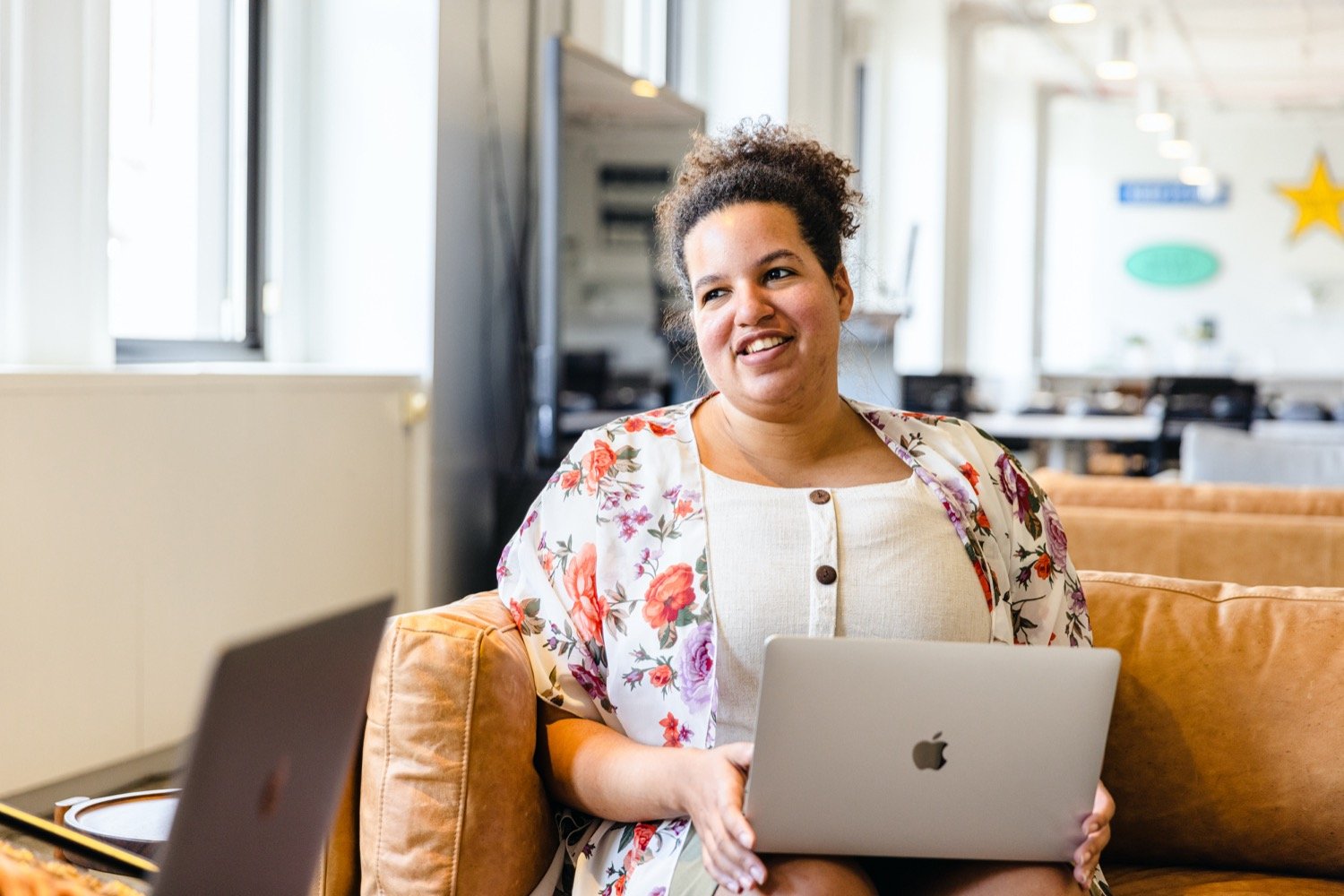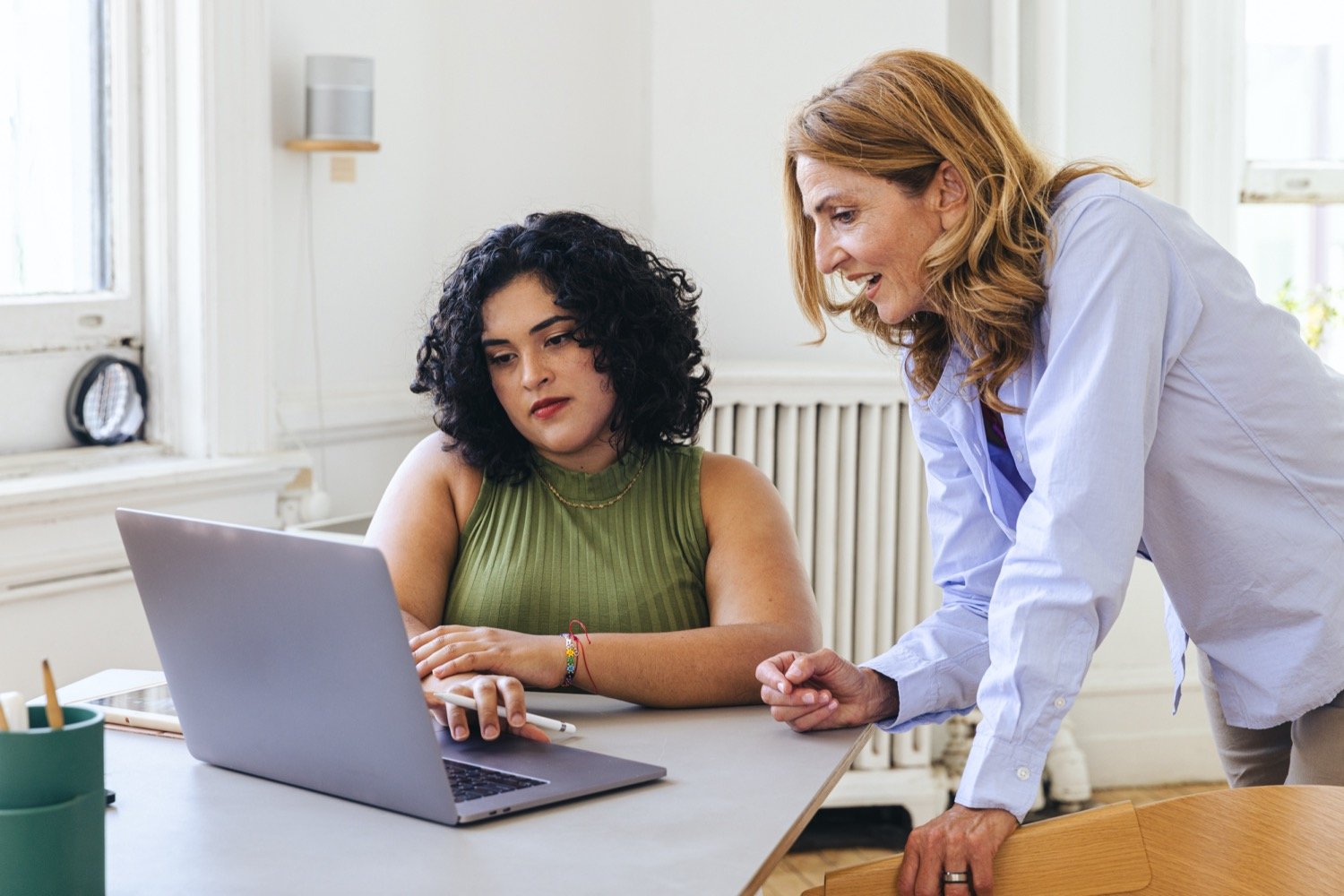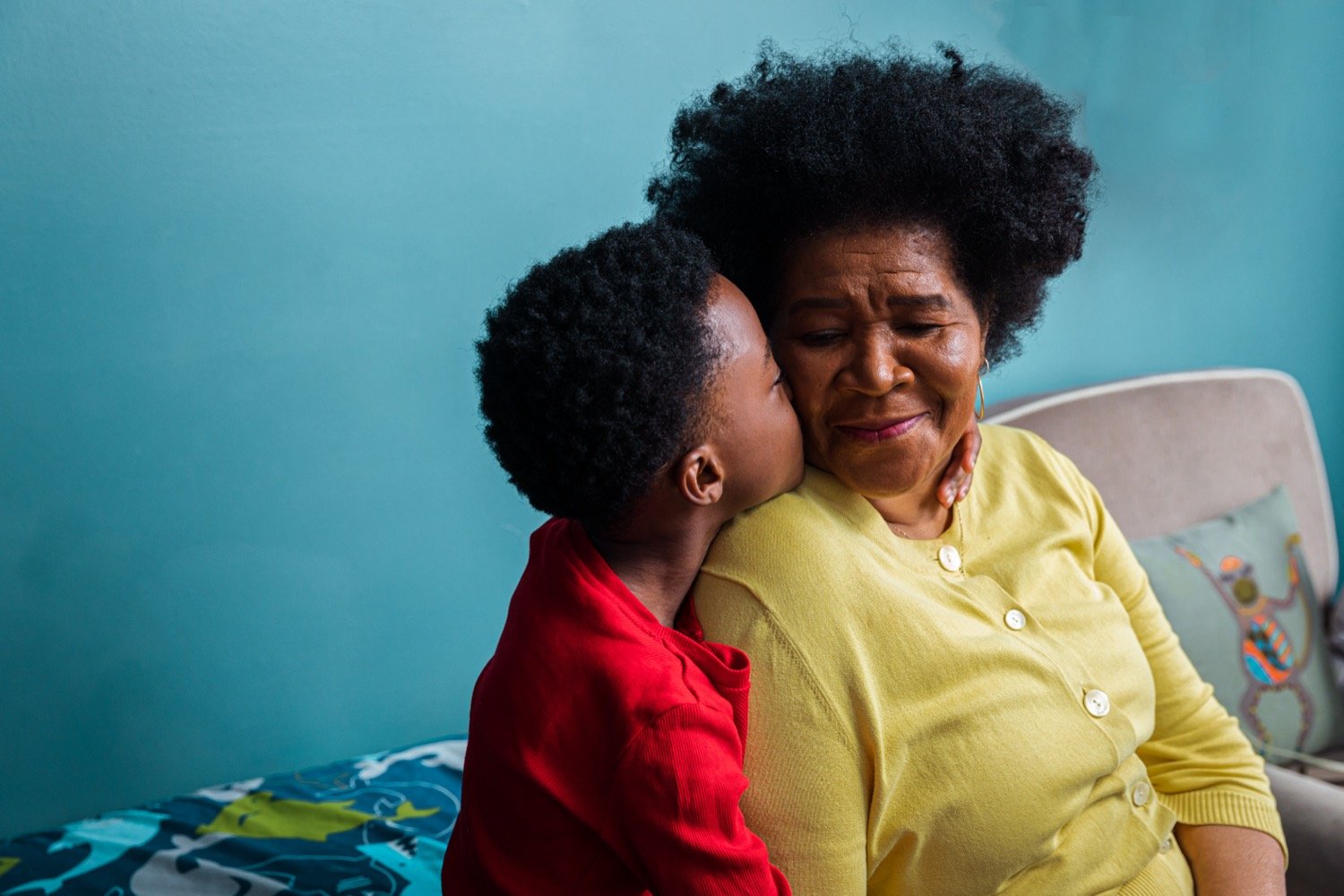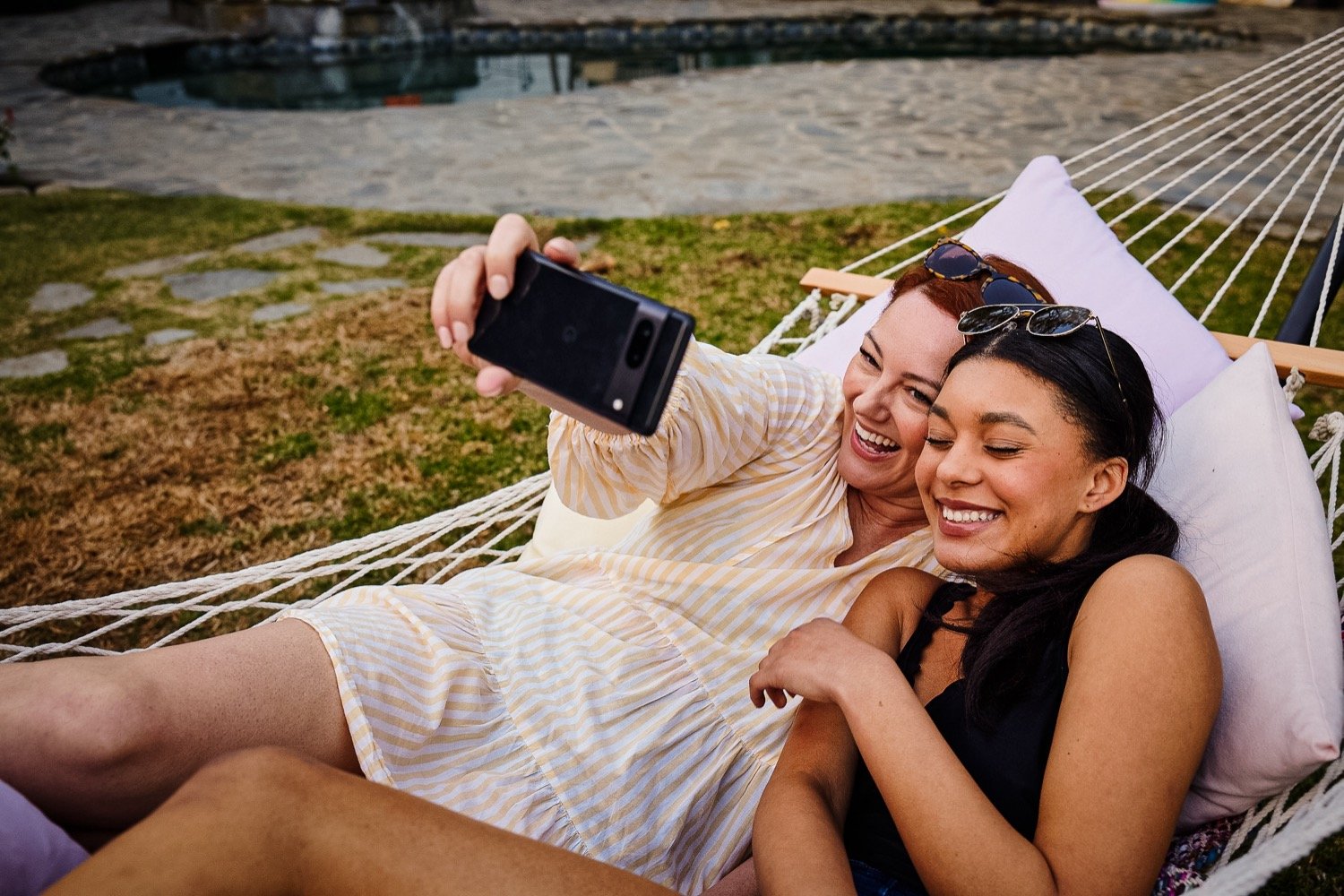Lisa Weatherbee
Image by Lisa Weatherbee
Lisa Weatherbee is a portrait and lifestyle photographer living in NYC with her family. She has always been invested in the power that photography has to shape our social consciousness and cares deeply about diversity, representation and creating images that feel authentic to our modern world. Her work is a continuing exploration of love, family and the magic of childhood.
Hi Lisa! Tell us a little about yourself — when did you first become interested in photography and how did you get to where you are today?
I grew up primarily in the midwest and I've always known that I wanted to be in the creative field. In college I studied art, of all disciplines, but I was also deeply interested in psychology and people. After college, I had a strong desire to put what I'd learned into practical use and I ended up attending the Miami Ad School down in Florida, studying art direction and later graphic design. I worked in that field for a few years, most notably at Nickelodeon and I loved my time in design but, after a while, I started to feel a stronger pull towards working with people and making pictures. For a couple of years I worked in both - as a freelance designer, as well as taking on any photography jobs that came my way - but as my style and my interests started to develop, I was able to step into full-time photography as a career.
Photographer Lisa Weatherbee
“I want to share my own story, as well as listen to others and to be a vehicle to help them share their own stories. I want to do it with nuance and sensitivity.”
A major mission in your photography is to create more representation of traditionally underrepresented people. Why is this important to you?
Growing up in the 80's as a half-Asian kid in the Midwest, I was just very aware of being different. Even well-meaning people were very eager to categorize and compartmentalize my identity. On television and in movies, I saw kids of color always as the sidekick, never the hero. I watched sitcoms where the gender roles were extremely traditional. I consumed all of this media and it just never sat right with me. It also didn't feel like the world that I lived in. Both of my parents worked. We ate a lot of pizza. I was proud of my Asian heritage but I resented the feeling that others wanted to simplify my story. When I grew up, I came to fully understand the power of the visual image, and I realized that in positioning myself as a storyteller, I had the power to tell some new stories - stories that were already happening all around me and that needed to be told. I want to share my own story as well as listen to others and to be a vehicle to help them share their own stories, and I want to do it with nuance and sensitivity.
Much of your work is in commercial and stock photography. Traditionally, this type of photography has had quite a staged look, however your work looks like we’re getting a sneak peek of someone’s day. What is your approach to creating authentic photos that will be used commercially or for stock?
It might seem like basic advice, but I always treat people with kindness and respect. I want people to feel comfortable, and I do that by asking questions, getting to know them, and making sure that they feel seen. In terms of direction on set, I believe in letting things play out naturally. At the top of a particular "scene", say breakfast around the table, I'll talk with talent about what we're trying to achieve, a basic story and perhaps some prompts they can keep in mind when we are shooting. I then just ask them to live it - let the action play out and let them make decisions. It feels a lot like a group game of pretend at times. People, even professionals, can often be quite nervous. I'm a professional and believe me, I get nervous all the time too, but when we all treat each other as humans - and this is when I think the kindness is really key - we help each other to move past those feelings because on the other side of that nervousness is the authenticity.
Image by Lisa Weatherbee
You’ve worked with some major commercial clients including Airbnb, Apple, Citibank, Warby Parker and many more. How do you approach creative collaboration with your clients?
Collaboration is essential to what I do. I believe that anyone in the room could have a great idea, so let's hear it. I don't like big egos on set, I prefer friendliness. The best client collaborations I've been a part of have been the ones where it feels like everyone is excited and everyone cares. I like to have a dialogue and I'm not afraid of feedback. When the goal is to make the pictures as emotional and authentic as possible, that is something we can all get behind, and having that as a common goal is why I love making pictures.
Walk us through your process of creating and putting together a stock photo shoot.
My stock shoots are fairly personal, in that they are generally born of something that really interests me, a story that I really would love to see told. I start with the idea and then I find the talent - whether this is through casting websites, personal networks or on social media. I talk with my talent a lot before a photoshoot ever starts - asking them to share with me about their daily lives and what is important to them. If I have the privilege of being able to help someone visually share their story, I want to get those details right. Sometimes we will use their own home as a location, or sometimes I'll look online and find a location that feels authentic to them. It depends on a lot of factors, but I do look for locations with a variety of spaces and with great light. From there, I will use my conversations with talent to build out a shot list for the shoot day but I generally try to keep things loose and flexible so that we can spend more time on things that are working and less on things that aren't. That's the beauty of a stock shoot - at the end of the day, it's me that decides how the day flows and that can be so freeing.


Do you work on personal projects in addition to client work? If so, why do you think personal projects are so important to pursue?
Personal projects are vital because they keep our eyes open and they hold us accountable in continuing to ask ourselves what we are interested in and what we feel is important. I understand that it can sometimes feel difficult to make personal work, this kind of work is often long-term and the gratification isn't always as specific. I struggle with those feelings as well, but I think if we are kind to ourselves and just ask ourselves what level of personal work we feel capable of making, we can continue to keep doing it and not get burnt out. Maybe you don't always have a years-long project inside of you that ends in a book - if you do, that is awesome - but if you don't, just try to set achievable goals for yourself. At the end of the day, personal projects keep us seeing and shooting and that is a good thing.
Given the speed at which AI is progressing in content creation, the landscape and future of photography are shifting rapidly. What opportunities and/or and challenges do you think AI will present for photographers?
I am processing the advent of AI, as all of us are as photographers. It's a very new area and there are certain things that excite me about it. It absolutely is a new tool for our toolkit, but I also think that there are many things that it can't do. The thing about AI for me is, that no matter how good at rendering skin tone it becomes, how well it can interpret a prompt - it's never going to bring to the table what a human being can bring. Personal connection and authentic emotion are still what we do best. That is something that I am sure of. Is there a place for AI in the future? Of course there is, and we will all have to make room - but heart and soul are still pretty integral here and I don't see that going away.
What is your go-to gear for photoshoots?
Personally I shoot primarily with my Canon 5D and a 24-70 lens. I love natural light and I love my Profoto B10 plus. I like to have minimal gear that will keep me covered, no matter the situation, and this allows me to move quickly/fluidly and stay with the emotion. I will say, however, that everyone should shoot with as much or as little gear as works for them and not worry too much about it. I say this because I think a lot of people find the technical side of photography intimidating and it stops them from finding their own way into making pictures. Don't be afraid to ask questions, make mistakes, and play around - use what you have and learn as you go.
What advice would you give to new photographers who are just starting out?
My advice to photographers starting out - be interested, take every job, and try to connect with other photographers, try to build a bit of community. I was very fortunate when first starting out to be thrust into an incredible community of other photographers as part of my experience attending a creative retreat called Phoot Camp. Instagram has also been a great source of community and connection for me as well. I say this because I think that a lot of what draws us to a career in photography is very social - so many of us love to meet people and share their stories - but the day-to-day grind of photography can be very isolating. Many days it's just you on your computer, so having photo buddies to commiserate with, to bounce ideas off of, to get psyched about - it keeps you loving what you do.
What are you working on now and what’s up next for you?
It can be hard for me to hit the ground running in January - I'm not a winter person and it does get to me - but besides working on edits from a couple of great projects that wrapped last year, I'm also beginning work on a new personal project that I'm pretty excited about. It's nice to be able to take some time and create work in the way that I want to. I don't know what 2024 will bring but I look forward to continuing to learn, listen and grow as a person and as a photographer.
Thank you for sharing with us Lisa! To view more of Lisa’s work, visit her website and follow her on Instagram and LinkedIn.
All images courtesy of Lisa Weatherbee





